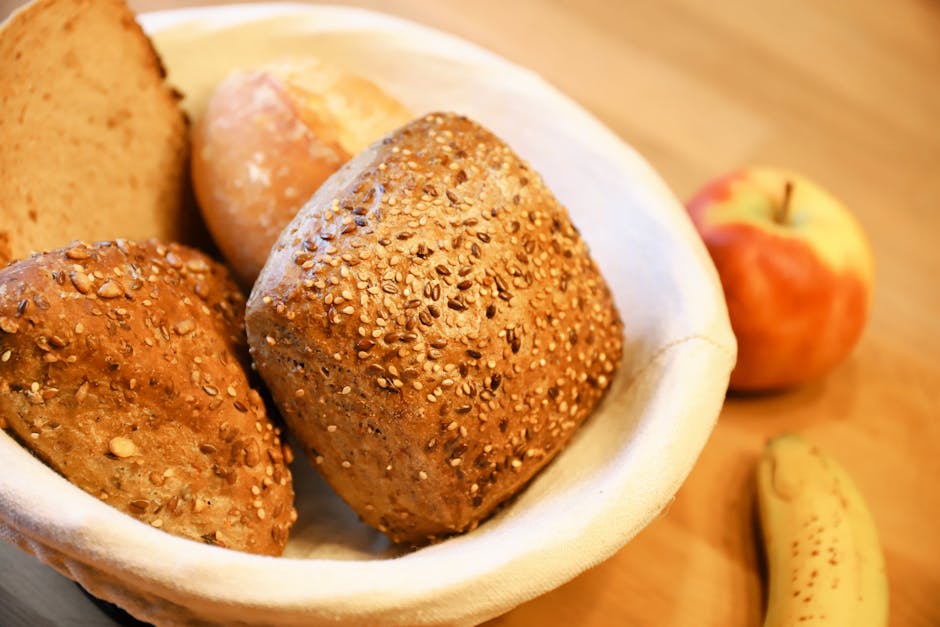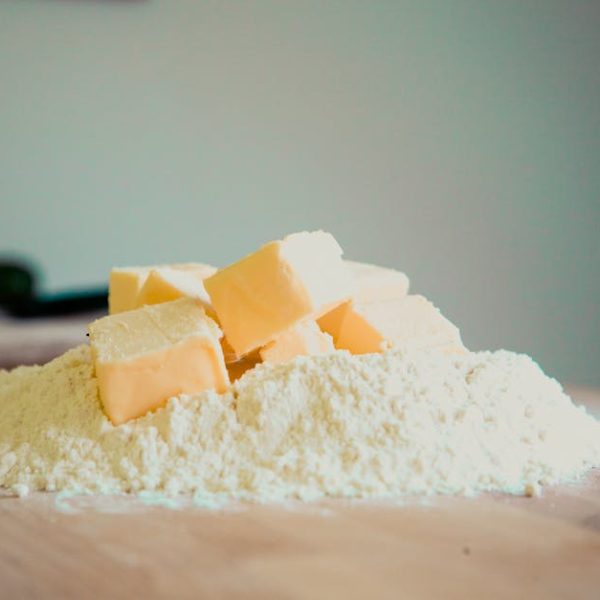While banana bread is a perennial favorite that can transcend seasons, maintaining its freshness for a prolonged period can be a challenging task. However, by understanding and implementing suitable storage methods, using longevity-enhancing ingredients, and avoiding common baking mistakes, you can enjoy your scrumptious banana bread for longer time periods.
Storing Banana Bread Properly
The freshness and quality of banana bread is predominantly dependent on how it’s stored. Indeed, the first requirement is it must cool down entirely after baking before initiating the storage process.
Once the banana bread has cooled down, wrap it in a clean cloth or kitchen paper. This material absorbs any residual moisture that could contribute to a soggy texture or faster spoilage.
After it’s wrapped, place the banana bread in an airtight container or zip-lock bag to maintain its appropriate moisture amount. These containers fend off bacteria or mold, thereby extending the bread’s shelf life. For those with a breadbox, this could serve as a superior alternative due to its effectiveness in maintaining the bread’s texture and preventing it from getting stale.
Now, here’s a simple checklist that could come in handy:
– Allow the banana bread to cool completely.
– Wrap it in clean kitchen paper or cloth.
– Store it in a sealable container or bag.
– If available, use a breadbox instead.
– Pro Tip: Always maintain the cleanliness of your breadbox, as dirt or crumbs could introduce bacteria, causing the bread to spoil more quickly.
Refrigeration Process for Longer Freshness
Among all the bread preservation techniques, refrigeration arguably shows the most effectiveness in prolonging banana bread’s freshness. Similar to other food products, refrigerating banana bread effectively slows down the deterioration process, thereby preserving its quality for a more extended period.
Before refrigerating, it’s recommended to pre-slice the banana bread, making defrosting single portions much more convenient. Once it’s ready, you can keep the bread in the refrigerator to preserve its freshness for a week.
However, if that’s not enough, freezing the bread can preserve it for up to 3 months! Just remember to wrap each slice in cling film or aluminum foil before placing it in a zip-lock bag. This method prevents freezer burn, keeping your banana bread tasty until you’re ready to indulge in it.
But how does refrigerated banana bread compare to that kept at room temperature in terms of freshness? Here’s a handy comparison:
| Room Temperature | Refrigerated | |
|---|---|---|
| Storage Duration | 2-3 days | 1 week |
| Impact on Freshness | Could dry out or go stale after a couple of days | Remains moist, maintains flavor for a longer duration |
Best Practice: For optimal preservation, pre-slice the banana bread before refrigerating or freezing, ensuring hassle-free serving options.
Using the Right Ingredients for Banana Bread
It’s worth considering that it’s not just the way we store banana bread that determines its shelf life, but also what goes in it in the first place. Certain types of ingredients have properties that can significantly maximize the bread’s longevity!
Primarily, sweeteners and oils are known to retain moisture in the bread, prolonging its freshness. Moreover, the star of the show, the bananas, play a crucial role as well! Bananas contain natural enzymes that help preserve the bread, thus enhancing its shelf life.
However, remember that more moisture can also mean a higher risk of mold growth, so balance is key.
Here are ingredients that can contribute to the longevity of Banana Bread:
– Brown sugar or honey: These alternative sweeteners help retain moisture.
– Vegetable oil and butter: They add richness, but also prolong the life of the bread.
– Ripe bananas: The riper the bananas, the longer your bread will last.
Pro Tip: Where possible, use brown sugar or honey instead of white sugar as they have a higher moisture content and can help keep your banana bread moist and fresh for longer.
Avoiding Common Mistakes in Baking and Storing Banana Bread
Unfortunately, it’s all too easy to inadvertently expedite the spoilage process of banana bread by committing a few common errors in baking and storing. Overmixing the batter or underbaking the bread could inadvertently speed up its spoilage rate and negatively impact its freshness.
One such mistake is rushing to store the bread while it’s still warm. This leads to condensation build-up and subsequently, the bread becomes soggy and spoils faster. Wait for it to cool thoroughly before storing it.
Also consider the thickness of your slices. Thin slices may dry out faster, while thick slices retain more moisture which can lead to more rapid molding. Therefore, it’s essential to strike a balance.
Here are some of the best practices when dealing with banana bread to avoid spoilage:
– Don’t rush: Allow the bread to cool completely before storage.
– Don’t overmix: Overmixing can lead to a tough and chewy texture.
– Don’t underbake: An undercooked banana bread is more prone to mold growth.
And here’s a comparison of thickly sliced vs. thinly sliced banana bread in terms of storage and freshness:
| Thinly Sliced | Thickly Sliced | |
|---|---|---|
| Storage Duration | tends to go stale sooner | maintains moisture longer |
| Impact on Freshness | Dries out faster | Can risk molding if too moist for extended period |
By applying these simple yet effective tips for storing banana bread, using the right ingredients, and avoiding common mistakes, you can not only extend its shelf life but also enjoy better-quality, more delicious banana bread for days or even weeks!
Key Takeaway:
- Proper storage of banana bread significantly influences its freshness. Wrapping it in a kitchen paper or clean cloth before storing in an air-tight container or bag helps absorb excess moisture and prevents it from becoming soggy.
- Refrigeration and freezing methods can substantially extend the bread’s life. Pre-slicing the loaf before freezing allows for easy defrosting of individual portions.
- The choice of ingredients plays a crucial role in the longevity of banana bread. Ingredients with properties that retain moisture, like sweeteners and oils, result in longer shelf life.
- Avoidance of common mistakes such as overmixing the batter, under baking, storing the bread while it’s still hot, and not correctly slicing it can greatly impact freshness and shelf life.
Preserving the freshness of your banana bread may seem challenging, but with careful selection of ingredients, appropriate storage practices, and avoiding common mistakes, it’s entirely possible. Just remember, patience is key. Allow your bread to cool, store correctly, and enjoy at your leisure!
FAQs
Q: Can I store banana bread in a breadbox?
A: Yes, a breadbox is an excellent storage option for banana bread. It can keep the bread from getting stale and maintain its texture.
Q: Is it better to use ripe bananas for banana bread?
A: Absolutely. Ripe bananas not only give the bread more flavour, but they also contain natural enzymes that help preserve the bread, thus enhancing its shelf life.
Q: Should I slice the bread before freezing it?
A: Pre-slicing the banana bread before freezing is recommended. This way, you can defrost single portions easily, instead of having to thaw the whole loaf.
Q: Can I keep banana bread at room temperature?
A: Yes, you can keep banana bread at room temperature, but do note this only preserves its freshness for about 2 to 3 days.
Q: Are there particular mistakes I should avoid to preserve my banana bread?
A: Avoid overmixing the batter as it can make the bread tough, and don’t rush to store the bread while it’s still hot to avoid condensation and sogginess. Moreover, ensuring your bread is fully baked can prevent early spoilage.
Enjoyed this article? Feel free to share it and explore more helpful posts on our website.






